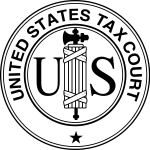 As the IRS continues to challenge charitable deductions for the contribution of conservation and facade easements, the Tax Court is considering the details of these arrangements with greater scrutiny. In doing so, the Court is refining the law governing these transactions. In its most recent opinion on this issue, the Court clarified yet another requirement for taxpayers who wish to claim this charitable deduction.
As the IRS continues to challenge charitable deductions for the contribution of conservation and facade easements, the Tax Court is considering the details of these arrangements with greater scrutiny. In doing so, the Court is refining the law governing these transactions. In its most recent opinion on this issue, the Court clarified yet another requirement for taxpayers who wish to claim this charitable deduction.
In Belk v. Commissioner, the taxpayers donated a conservation easement over a 184 acre golf course and claimed a $10.5 million deduction on their 2004 tax return. The conservation easement agreement executed by the parties included a provision which allowed the owner of the property (i.e., the taxpayers) to substitute the property subject to the easement with “an area of land owned by Owner which is contiguous to the Conservation Area for an equal or lesser area of land comprising a portion of the Conservation Area.”
The IRS challenged the validity of the entire donation on the grounds that the real property interest (i.e., the golf course) was not donated in perpetuity because the substitution provision allowed it to be replaced by another property. The IRS argued that the substitution provision violated the requirement that the contribution be an interest in real property that is subject to a use restriction granted in perpetuity under IRC §170(h)(2)(C).
The IRS previously had argued that certain facade easements violated the “in perpetuity” requirement. See, Kaufman v. Commissioner, 134 T.C. 182 (2010) (Kaufman I) and Kaufman v. Commissioner, 136 T.C. 294 (2011) (Kaufman II). The Kaufman argument, however, was based on the language of IRC §170(h)(5) which requires that the conservation purpose of the easement be protected in perpetuity. Though the IRS prevailed in the Tax Court, Kaufman and the §170(h)(5) argument was overturned by the First Circuit Court of Appeals. Kaufman v. Shulman, 687 F.3d 21 (1st Cir. 2012).
In Belk, the IRS, and apparently the taxpayers (see footnote 17), combined the two provisions of §170 while making the perpetuity argument. Judge Vasquez, writing for the Court, parsed the issue more carefully. He noted that §170(h)(2)(C) requires that the property must be subject to a perpetual restriction on use as distinguished from § 170(h)(5) which requires that the conservation purpose be protected in perpetuity. The Court made it clear that the two provisions were separate and distinct and based its decision on the former.
The Court held that the donation made by the Belk’s did not constitute a “qualified real property interest” under §170(h)(2)(C) because the conservation easement agreement allowed for substitution of the contributed property. The court found that the contributed property was not subject to a use restriction in perpetuity but in fact subject to the restriction only so long as the substitution provision in the agreement was not exercised. Accordingly, the charitable donation did not meet the requirements of §170(h) and the deduction was denied in full. The Court did not reach the question of conservation purpose or valuation.
Read the entire opinion here:
Belk v. Commissioner, 140 T.C. No. 1 (2013)


